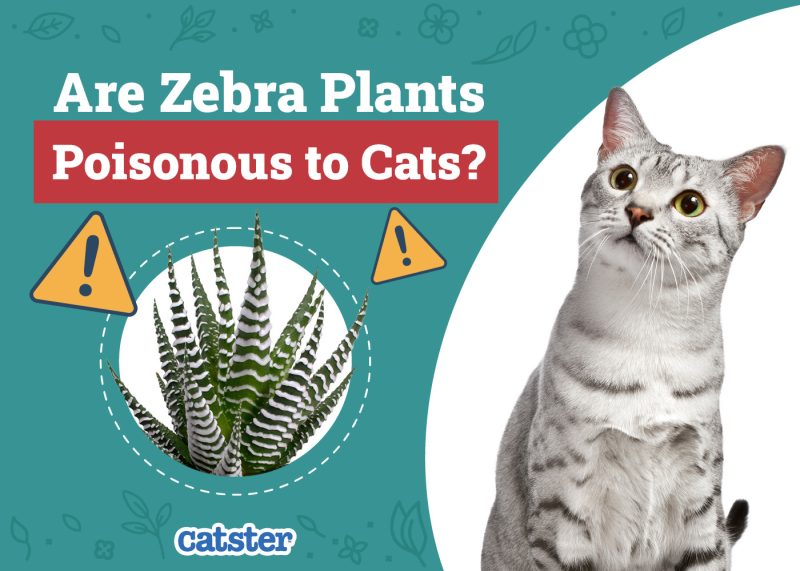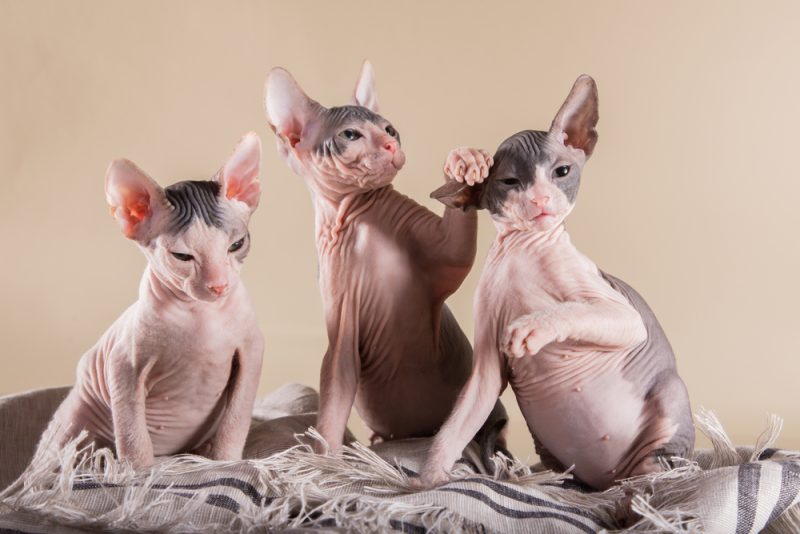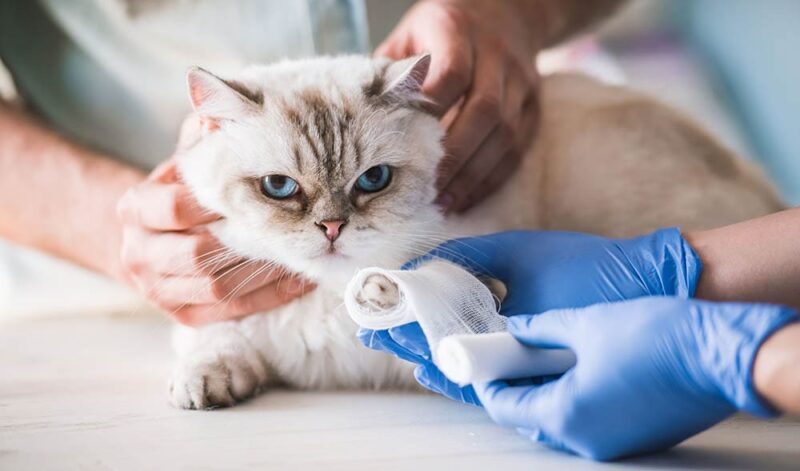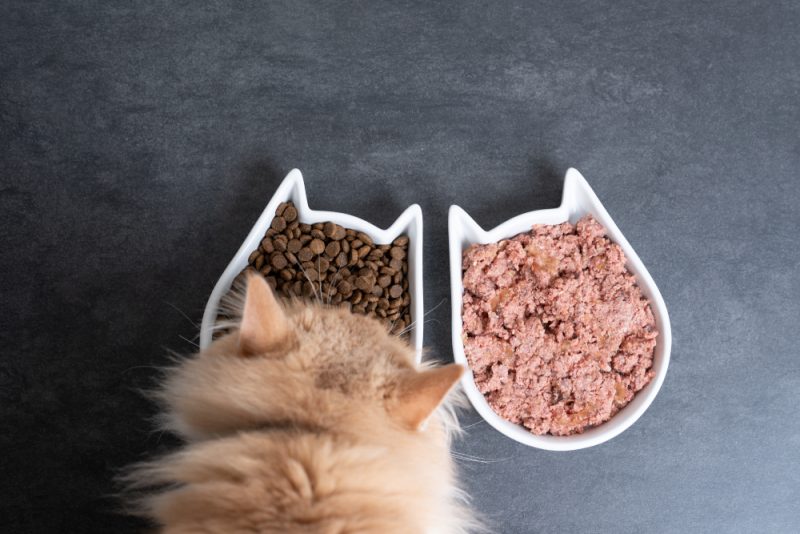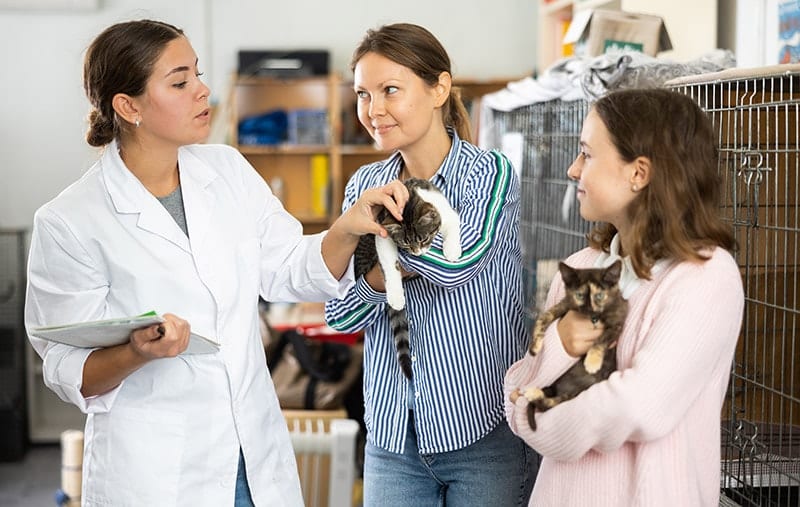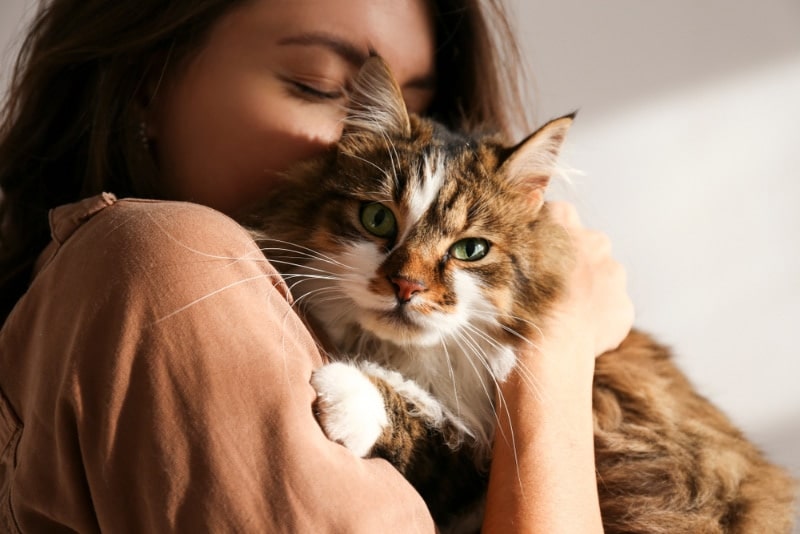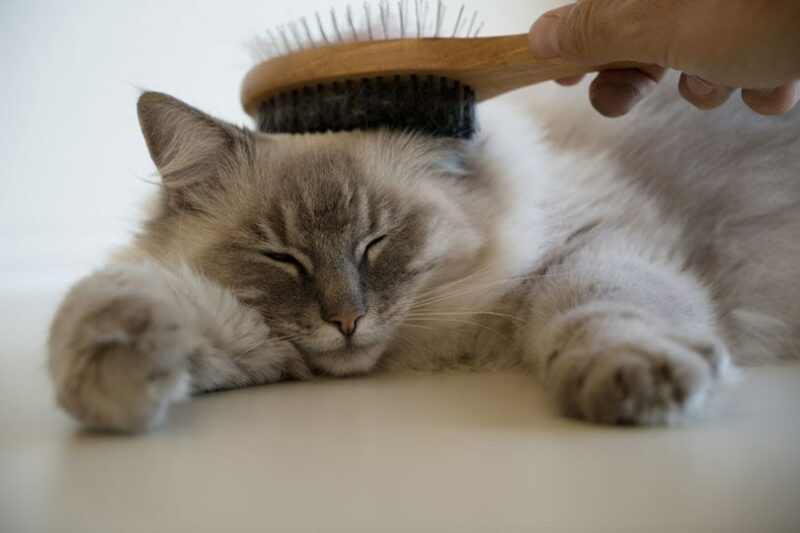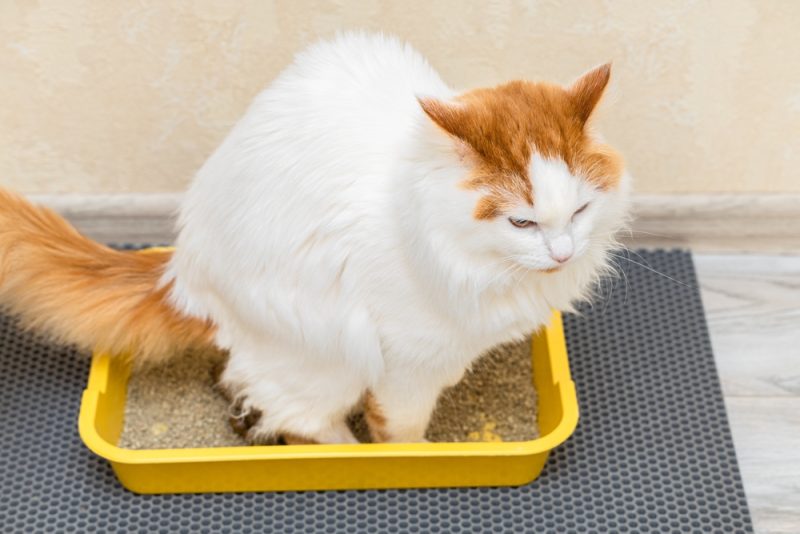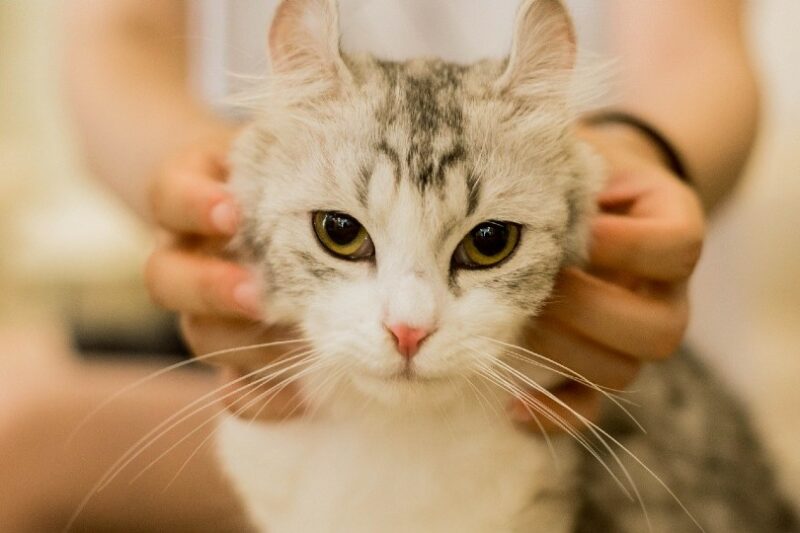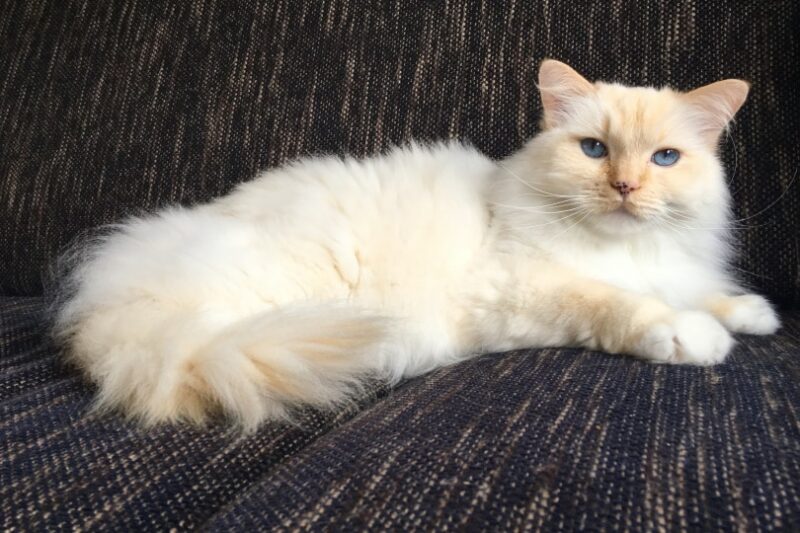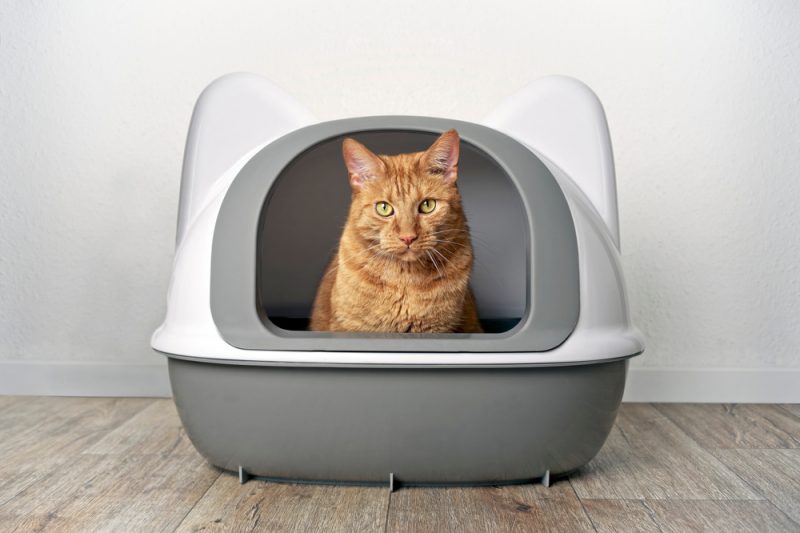Haworthia plants—also known as “zebra plants”—are stylish, easy-to-care-for houseplants popular with beginners and long-time plant lovers alike. If you have cats, it’s normal to want to get the lowdown on which plants may be harmful to them. Fortunately, Haworthias are not toxic to cats.
That said, it’s never a good idea to let your cat nibble on even safe ones. Here, we explain why this is the case and share which other plants are safe for cats and which ones are toxic.

Are Zebra Plants Poisonous to Cats?
No. According to the ASPCA, zebra plants are not toxic to cats, dogs, or horses. So, if you’re a fan of these luscious, funky little plants, you can take a deep breath—their place in your home is perfectly safe! However, it’s easy to mistake zebra plants for aloe vera, which is toxic to cats.
With that out of the way, it’s still not the best idea to let your cat eat your houseplants, even if they are considered non-toxic. They may end up with a stomach upset, especially if they eat a large portion of the plant. Clinical signs of a stomach upset include vomiting and diarrhea. Usually, if the plant is non-toxic, these signs will settle down on their own.
If, however, your cat’s signs appear to be severe, get them checked out by a vet to make sure they haven’t actually taken a bite out of a toxic plant.
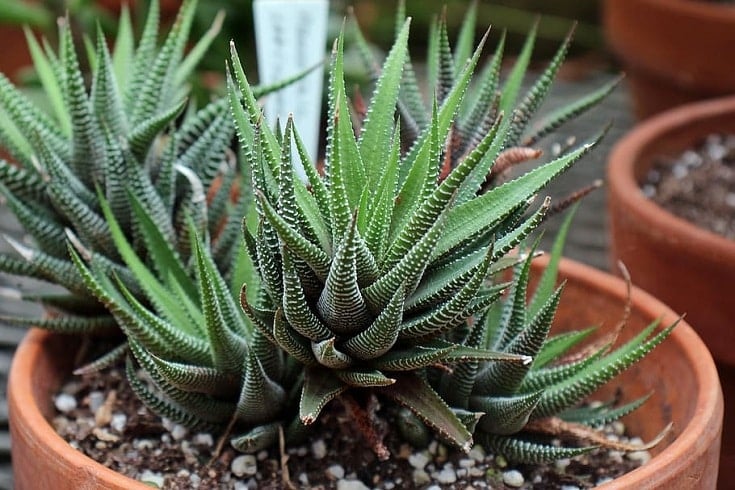
Which Plants Are Toxic to Cats?
Several types of common houseplants are toxic to cats, and the following list reveals some of the plants you really need to watch out for if you have cats around. This is not a complete list, so even if a plant isn’t here, we still recommend checking it out first to make sure it’s not toxic to cats.
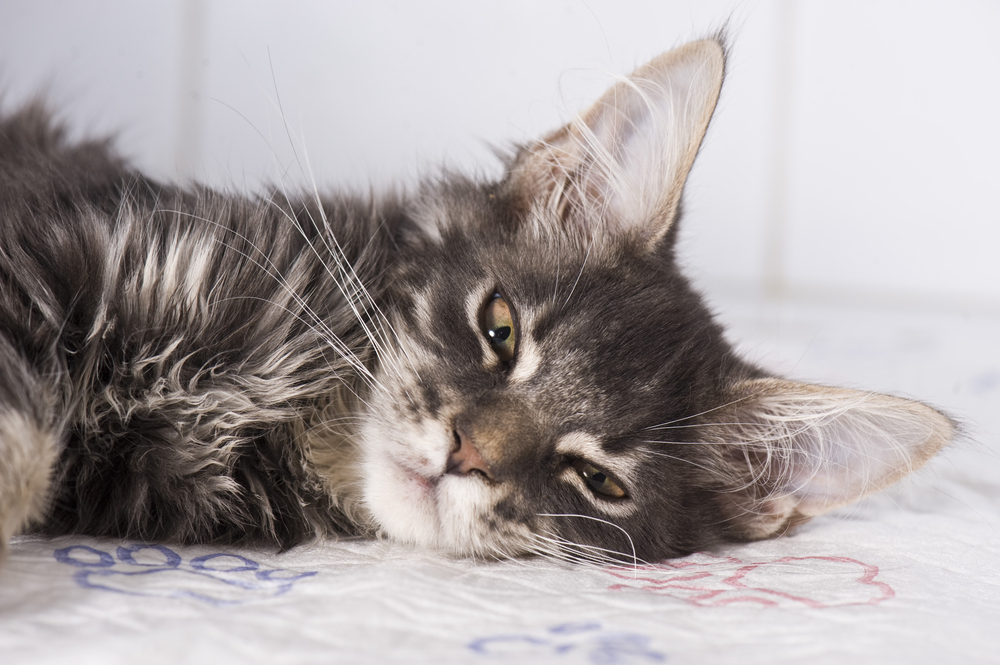
What Are the Signs of Plant Poisoning in Cats?
Common signs of poisoning in cats include drooling, salivating, diarrhea, vomiting, breathing difficulties, and abdominal pain. However, some cats also experience twitching, collapsing, going into shock, lethargy, depression, becoming comatose, swelling, yellowing of the skin or eyes (jaundice), weakness, appetite loss, irregular heartbeat, and walking unsteadily.
The signs tend to vary depending on how severely the cat has been poisoned. If you suspect that your cat has eaten a toxic plant or even a part of one, contact your local pet poison hotline or your vet immediately.
If you need to speak with a vet but can't get to one, head over to PangoVet. It's an online service where you can talk to a vet online and get the advice you need for your pet — all at an affordable price!

Even if you’re uncertain your cat has eaten a toxic plant, don’t worry about “bothering” your vet over a false alarm—this is far better than your cat becoming sick. Our motto is always “better safe than sorry!”
Which Plants Are Safe for Cats?
Luckily, if you’re a plant lover, there are still plenty of plants that are not toxic to cats that you can enjoy keeping around your home. These include:
- Cat grass
- Bird’s nest fern
- Money tree
- Calathea freddie
- Kimberly queen fern
- Parlor palm
- Rattlesnake plant
- Calathea orbifolia
- Venus fly trap
- Polka dot plant
- Orchid
- Bromeliad
- Marigold
- Spider plant

Final Thoughts
Zebra plant aficionados can rest assured that these quirky plants are perfectly safe to keep around the home with cats! Try not to let your cat nibble on them, though, as you don’t want to risk a tummy upset. However, if your cat does eat part of a non-toxic plant, it’s highly unlikely that they’ll encounter any sinister side effects.
Featured Image Credit: Thomas Martin, Pixabay
